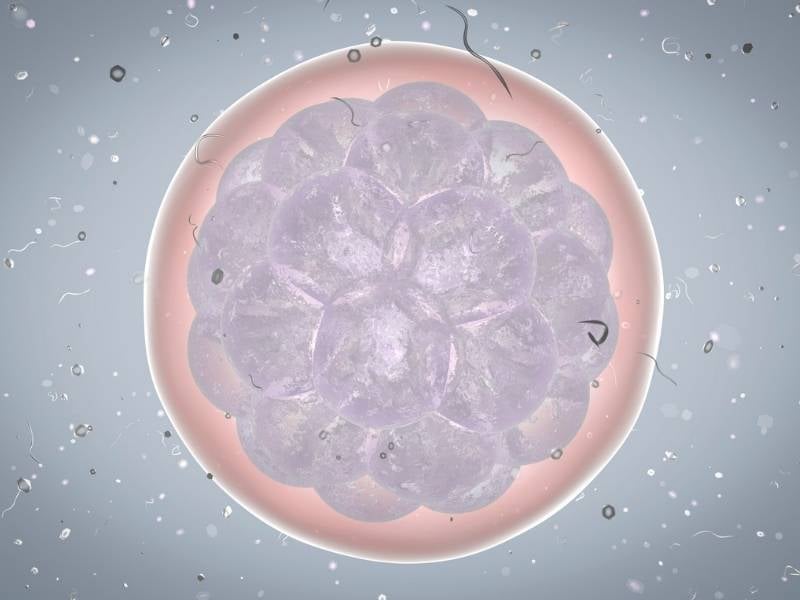 In the last few days, much has been written about the lower success rates of using frozen donor eggs over fresh . It is not surprising that fresh eggs have a significantly higher success rate. Our group at RMANJ published a study on this several years ago looking at sibling oocytes from the same woman. We demonstrated that the survival of frozen eggs was approximately 82% and that there were approximately one third fewer viable blastocysts. These embryos were just as likely to have to the correct number of chromosomes and just as likely to result in a successful pregnancy. Therefore, it is not surprising that frozen donor egg cycles are less successful – fresh eggs are more efficient at generating viable embryos, offering a better chance at pregnancy.
In the last few days, much has been written about the lower success rates of using frozen donor eggs over fresh . It is not surprising that fresh eggs have a significantly higher success rate. Our group at RMANJ published a study on this several years ago looking at sibling oocytes from the same woman. We demonstrated that the survival of frozen eggs was approximately 82% and that there were approximately one third fewer viable blastocysts. These embryos were just as likely to have to the correct number of chromosomes and just as likely to result in a successful pregnancy. Therefore, it is not surprising that frozen donor egg cycles are less successful – fresh eggs are more efficient at generating viable embryos, offering a better chance at pregnancy.
However, after a few years of using frozen donor eggs, it is clear that they have their place. Most egg banks provide their eggs in bundles of 6 or 8, thereby lowering the cost for the patient without insurance coverage . For most patients, a treatment cycle with frozen donor eggs is half the cost of fresh donor eggs. Even though we start off with fewer eggs, the majority of cycles result in one or two viable blastocysts. This translates into pregnancy rates over 55-60% per transfer! Perhaps more importantly is that couples can begin treatment almost immediately . There are no wait list or schedules to coordinate. A couple can order their eggs and begin treatment within weeks instead of months. For some couples, this is an important distinction. As little as 10 years ago, the concept of freezing oocytes was not possible with survival rates of 25 to 30%. We should be celebrating the fact that frozen donor eggs have success rates that are similar, although not quite as good to fresh donor eggs!
At RMANJ we have sought to provide a multitude of options for our patients who wish to conceive. The concept of frozen donor eggs has evolved over time and clearly has its place. Moving to donor eggs is a difficult decision and one that many couples agonize over. It is essential that couples understand their reproductive options and choose the treatment that maximizes the potential use of their emotional, psychological and financial resources.
TIME article : http://time.com/3990776/ivf-egg-freezing-birth-rates/
 -Blog Post by Dr. Thomas Molinaro, MD, MSCE, FACOG
-Blog Post by Dr. Thomas Molinaro, MD, MSCE, FACOG
Physician Partner, Reproductive Medicine Associates of New Jersey Eatontown, NJ
View more blogs by Dr. Molinaro or follow him on Facebook & Twitter



